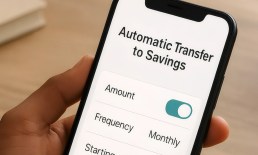Nigeria’s eNaira digital currency is proving popular, although some critics say the population’s mistrust of the government might hinder its progress, the Financial Times (FT) reported. The central bank digital currency (CBDC) was launched Oct. 25.
More than half of Nigerians don’t have a formal bank account, said Ronak Gadhia, analyst for EFG Hermes, an investment bank focused on emerging markets, per the report. Many of them participate in the “informal” economy, and last year, the central bank’s freezing of accounts for people participating in anti-police brutality protests didn’t do any favors for government trust.
“The eNaira actually makes it even easier if the government wants to shut down someone’s account … or even the whole system,” he said in the report.
A senior Central Bank of Nigeria official said the eNaira’s first week and a half had been successful, registering almost 400,000 new wallets along with 12,500 transactions from customers, totaling $113,000, according to the report. Even so, some customers had also complained about a clunky sign-up process.
Analysts have wondered if the eNaira could fulfill the promises of the bank’s goals, like cutting transaction costs, promoting cross-border flows including incoming remittances, and getting more people into the financial system, the report stated.
Although six Caribbean countries have launched digital currencies as well, Nigeria’s rollout happened ahead of numerous other central banks. Countries like France, Germany and China are still in the testing phase, according to the report.
Advertisement: Scroll to Continue
The eNaira’s official debut came after the country’s move to ban banks from dealing in or working with cryptocurrency transactions. The eNaira was developed in partnership with Barbados-based Bitt Inc.
Read more: Nigeria to Debut its eNaira Currency Today
Godwin Emefiele, governor of the Central Bank of Nigeria, said the eNaira would also be a wallet and allow people to hold funds in their accounts.




